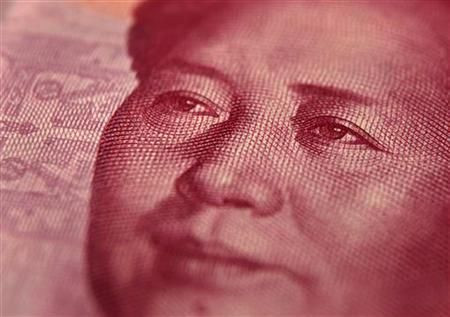Exclusive: China eyes creation of ASEAN Bank

China is considering a proposal to set up a regional bank to help its small and medium enterprises (SMEs) invest in Southeast Asian neighbors, fund infrastructure projects and promote development in southwestern China, two independent sources said.
After approval by the State Council, or cabinet, China would formally invite members of the Association of Southeast Asian Nations (ASEAN), Japan and South Korea to each take a stake in the ASEAN Bank, said the sources, who have direct knowledge of the proposal.
China, the world's second biggest economy, is likely to be the bank's biggest single shareholder with an initial investment of up to 30 billion yuan ($4.7 billion), the sources said, requesting anonymity because they are not authorized to speak to reporters. The other countries' stakes still must be negotiated.
ASEAN Bank will be a commercial bank and at the same time a policy bank, the first source told Reuters. It will be a mini Asian Development Bank (ADB).
The ADB was founded in 1966 to help fight poverty in Asia. The Manila-headquartered bank is owned and financed by its 67 member countries. Its president is traditionally from Japan, the lender's biggest donor along with the United States.
China hopes the ASEAN Bank will buy it some goodwill in Southeast Asia, providing low interest loans to infrastructure projects and Chinese SMEs investing there, the sources said.
The bank will also settle China-ASEAN trade in yuan, a step in China's long campaign to make the yuan, also known as renminbi or people's currency, a regional currency.
China's cabinet and the central bank declined immediate comment.
Vietnam's central bank said it had not received any information or an invitation to join. The Philippine central bank refused to comment. Central banks of Indonesia, Malaysia, Singapore and Thailand could not be reached for comment.
CHINA-ASEAN TRADE SOARS
Trade between China and ASEAN members has soared since a bilateral Free Trade Agreement took effect in 2010.
The ASEAN bloc overtook Japan to become China's third-largest trading partner this year after the European Union and the United States. China-ASEAN trade accounted for 10 percent of China's total trade in the first nine months of 2011.
China is ASEAN's biggest trading partner. Two-way trade rose 26.4 percent to $267 billion in the first nine months, an $18.9 billion surplus in favor of ASEAN, Chinese customs data show.
China wants the bank in the southern Guangxi region, where it hopes it can help transform the area into southwest China's financial center.
Southwest China needs a financial center to balance east-west development, the second source said, referring to China's wealthy coastal provinces and impoverished hinterland.
Guangxi and (neighboring) Yunnan (province) will play a key role in regionalization of the yuan, the source added.
Reuters reported last week that China plans to sign a framework agreement with ASEAN to settle trade in yuan, formalizing a pilot program put in place in 2009.
State news agency Xinhua confirmed that report on Saturday, quoting Jin Qi, an assistant to the central bank governor.
But Gavin Bowring, a Hong Kong-based analyst with research firm GaveKal Dragonomics, said Nanning -- Guangxi's regional capital -- would find it difficult to compete against nearby Chengdu and Chongqing as the epicenter of western China.
Though Nanning is a suitable geographical location to spur ties with ASEAN countries, it is mainly a convenient spot only for neighboring Vietnam and Laos, and to a lesser extent Thailand and Myanmar, Bowring said.
Having said that, it appears Malaysian companies are investing in infrastructure, real estate and other projects in Nanning so there is some credence to the plan, he added.
HELP FOR CHINESE ENTERPRISES
The new bank will facilitate new business opportunities for Chinese SMEs -- a pillar of the economy but which have been squeezed by a Beijing-led credit clampdown, a firmer yuan, falling export orders and rising land and labor costs.
It will resuscitate SMEs abroad rather than (let them) die at home, the first source said.
Many cash-strapped SMEs are drowning after turning to loan sharks who charge exorbitant interest rates. Scores of SME bosses have gone into hiding or fled abroad.
China plans to create a vice-ministerial level agency to facilitate lending to SMEs.
The 10-member ASEAN, ranging from resource-rich Indonesia to financial center Singapore, is planning a union by 2015 to become a single market and production base to compete with rising Asian powerhouses China and India.
Despite friction with several ASEAN members over overlapping territorial claims in the South China Sea, China is keen to boost ties with its economies, which it relies on for commodities and energy supplies, such as natural gas and crude palm oil, to keep the Chinese economic engine humming.
The region, home to 600 million people and a combined GDP of $2 trillion, is also angling for foreign investment.
($1 = 6.353 Chinese Yuan)
(Editing by Brian Rhoads and Paul Tait)
© Copyright Thomson Reuters 2024. All rights reserved.





















